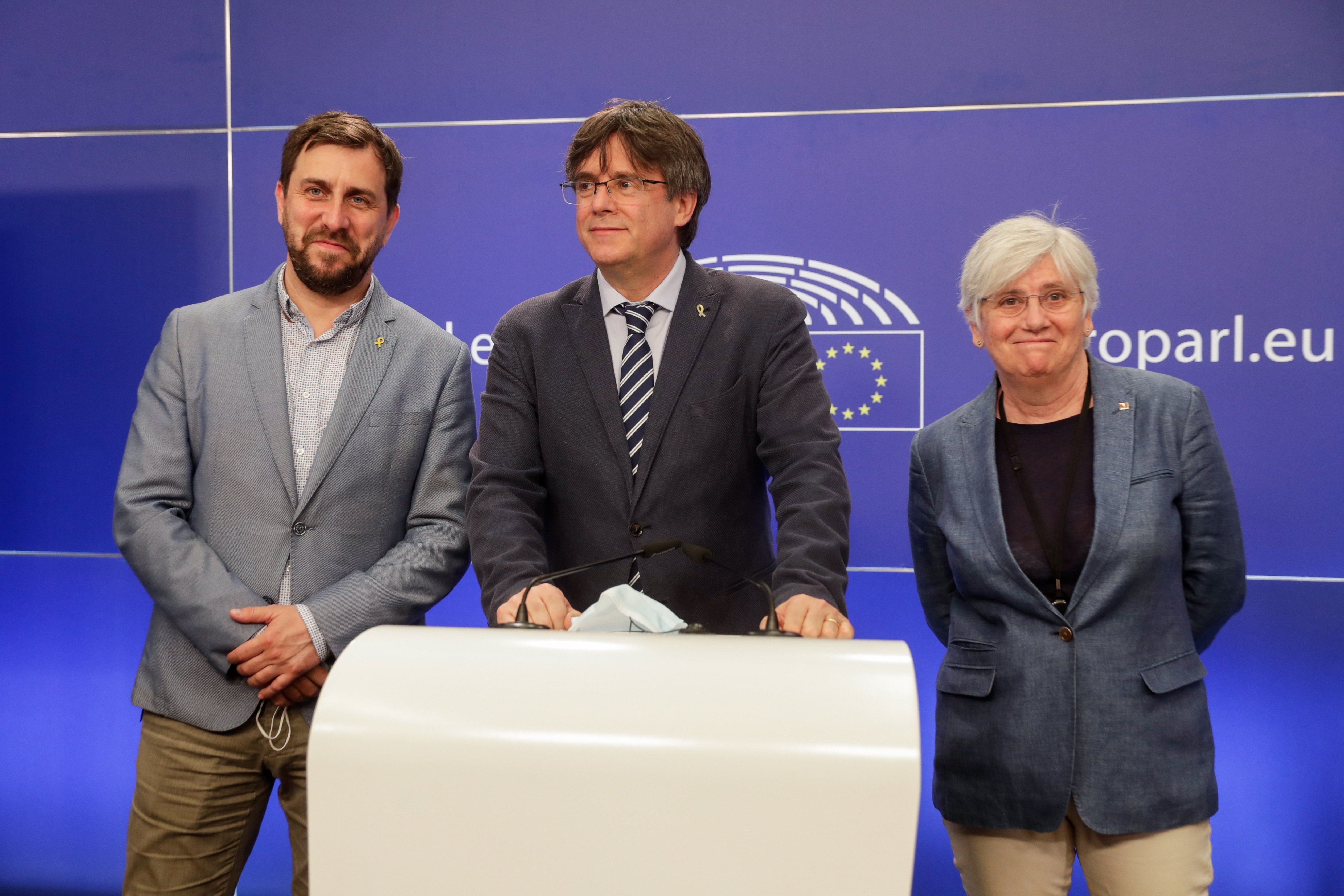While awaiting the resolution by the European Court of Justice (ECJ) on Spanish Supreme Court judge Pablo Llarena's preliminary questions, the Catalan politicians in exile now demand that Spain's Constitutional Court should be the next to test its decision on the same issue - the European Arrest Warrants (EAWs) for the exiled politicians - by also sending it to the European high court in the form of a preliminary question. Moreover, in the midst of a debate in Europe on the conflict between the EU and Poland, the exiled leaders have warned the Constitutional Court that its rejection of the appeals made against the EAWs puts it in a situation of "open rebellion" in relation to the EU law.
The defence team for the exiled politicians, led by Gonzalo Boye, has filed a new appeal on behalf of exiled president Carles Puigdemont and ministers Toni Comín, Clara Ponsatí and Lluís Puig, in response to the Constitutional Court's decision on October 5th to endorse judge Llarena's EAWs.
Open rebellion
The 47-page submission, to which ElNacional.cat has had access, states that the argument employed by the Constitutional Court to oppose the suspension of the arrest warrants contradicts EU law and jurisprudence. "The relative weighting of the interests at stake made by the Court is manifestly arbitrary, placing this organ in a position of open rebellion against EU law and in ignorance of ECJ jurisprudence," the text reads.
It denounces that the court maintains the EAWs in force even though the four exiles have parliamentary immunity as members of the European Parliament or the Parliament of Catalonia and recalls that this situation has existed for two years. But it also asserts that the warrants should be suspended until the ECJ responds to the questions presented by judge Llarena in relation to the Belgian refusal to extradite Lluís Puig.
The writ recalls that both Belgium and Italy have suspended the EAWs until the European Court of Justice responds, and it denounces that the Constitutional Court has violated the appellants' right to effective judicial protection and due legal process with all guarantees.
In summary, it considers that now is an appropriate procedural moment to raise a preliminary question on the "compatibility of the criteria" used in the Constitutional Court's ruling to reject the interim measures which the exiled politicians had requested as well as the right to "effective judicial protection" recognized by the EU Charter of Fundamental Rights and endorsed by ECJ jurisprudence. The text sets out the precise terms in which it considers that a question should be couched, in order for the Luxembourg court to take a position on the Spanish court's decision to endorse judge Llarena's European warrants.
Public hearing
Finally, after denouncing that the Constitutional Court's resolution “violates the right to due process with all guarantees, as well as the right to a resolution motivated and based in law” - because it denied the request for a public court hearing to address this issue, the appeal again calls for the holding of such a hearing.
In the main image, MEPs Toni Comín, Carles Puigdemont and Clara Ponsatí in the European Parliament / Efe

